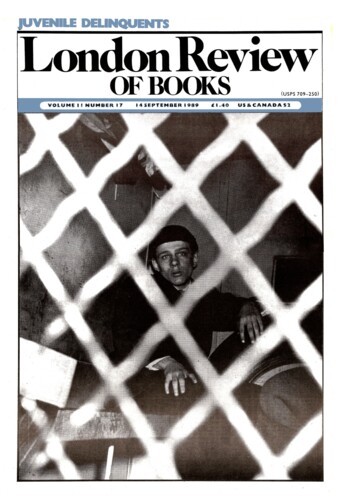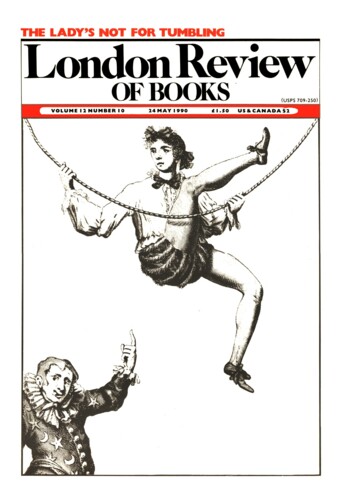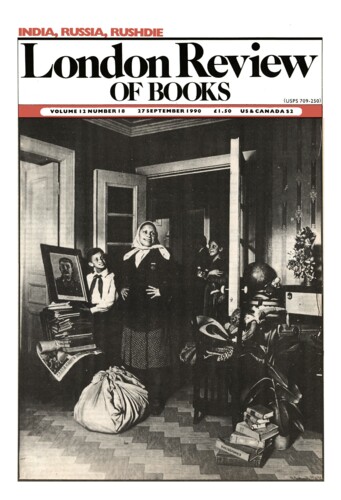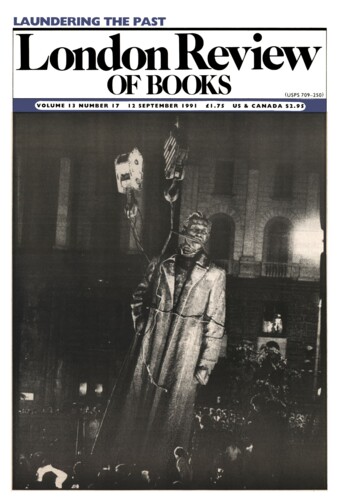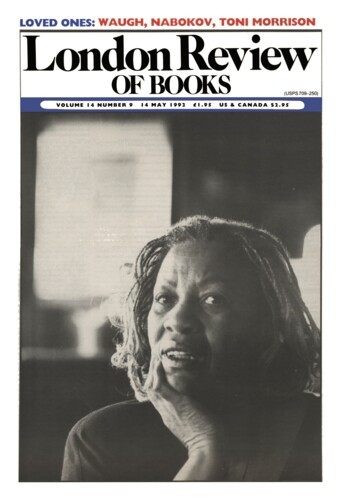A Seamstress in Tel Aviv
Adam Phillips, 14 September 1989
Psychoanalysts after Freud have to acknowledge that the founder of psychoanalysis was never properly trained. He was not psychoanalysed in the conventional sense – that is, by someone else; and there was no one to tell him whether what he was doing with his patients was appropriate. That Freud, paradoxically, was the first ‘wild’ analyst is one of the difficult facts in the history of psychoanalysis. It is easy to forget that in what is still its most creative period – roughly between 1893 and 1939 – when Freud, Jung, Ferenczi, Abraham, Klein and Anna Freud herself were learning what they thought of as the ‘new science’, they had no formal training. Later generations of analysts dealt with their envy of Freud and his early followers by making their trainings increasingly rigorous, by demanding and fostering the kind of compliance – usually referred to as ‘conviction’ – that tended to stifle originality. Psychoanalytic training became a symptom from which a lot of people never recovered.’
